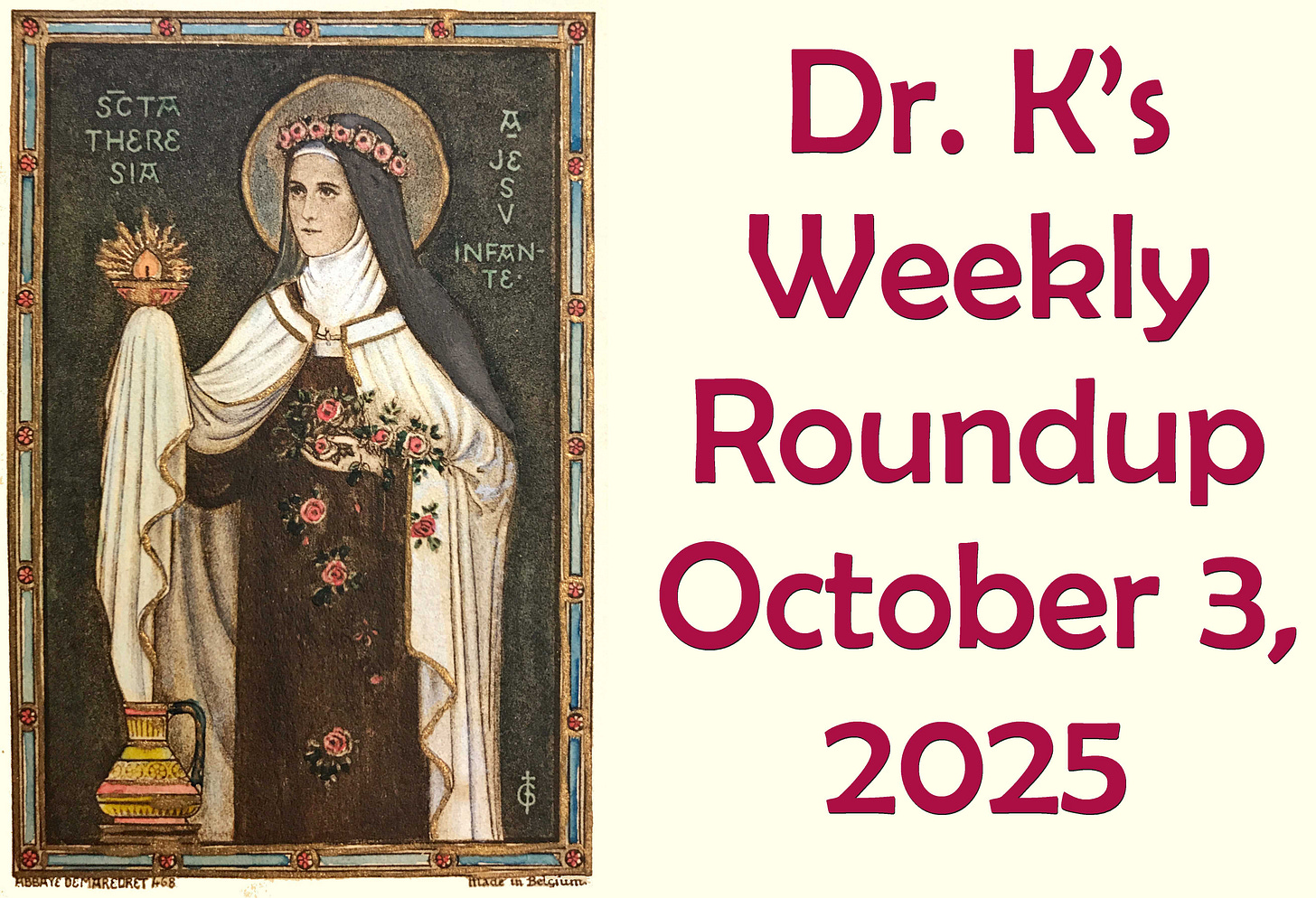Dr. K’s Weekly Roundup, October 3, 2025
Happy (old-calendar) feast of the Little Flower!
Keeping the flame lit
Now that the ban on parish TLMs has taken effect in Charlotte, it is time to ask: What is to be done when bishops behave like ravening wolves? First and most importantly, the laity should remain faithful to the lights God has given them. That means not simply abandoning the TLM because…
Keep reading with a 7-day free trial
Subscribe to Tradition and Sanity to keep reading this post and get 7 days of free access to the full post archives.



